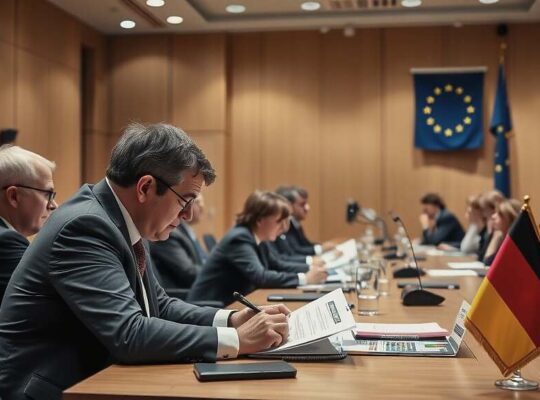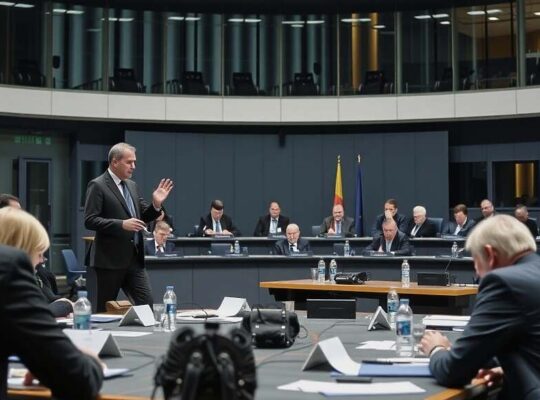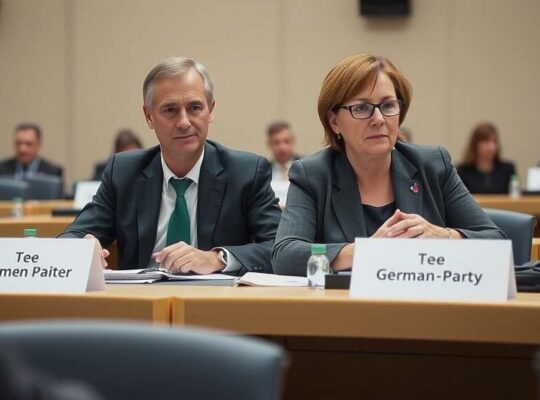A growing chorus of criticism is targeting the European Commission over the sluggish implementation of the Draghi Report, a comprehensive analysis of the EU’s economic standing delivered nearly a year ago. The report, commissioned to identify pathways to bolster European competitiveness and investment, appears to be languishing, raising serious questions about the Commission’s commitment to structural reform and its capacity to translate policy recommendations into tangible action.
Hildegard Müller, President of the German Association of the Automotive Industry, voiced strong frustration, stating the report has been “taken note of and more or less filed away”. She expressed concern that while Brussels excels at generating reports and roadmaps, “structured work on European competitiveness has not yet taken place sufficiently”. The sentiment reflects a broader perception that ambitious, high-level policy discussions are failing to translate into practical, impactful changes within the EU.
Europa-Abgeordnete Svenja Hahn of the Free Democratic Party (FDP) echoed this sentiment, sharply criticizing President Ursula von der Leyen. “The Draghi Report is gathering dust in Ursula von der Leyen’s speeches” Hahn asserted, accusing the Commission of being trapped in “bureaucratic gridlock”. She highlighted a persistent trend towards increased regulation and centralized control, rather than the deregulation and market-driven liberalization initially advocated for within the report. The implementation of even relatively minor simplification measures, such as those proposed under the Supply Chain Act, is reportedly stalled, threatening to become a symbol of Europe’s perceived inability to reform.
The “Draghi Tracker” maintained by the private “Initiative Joint European Disruptive Initiative” (JEDI), paints a stark picture of inaction. The tracker reveals the European Commission has, as of yet, failed to enact a single idea from the report. While 15% of the proposals are reportedly in progress, a concerning 40% face minimal advancement and a staggering 45% remain entirely undiscussed.
This lack of follow-through echoes a similar pattern observed with previous reports. The analysis produced by former Italian Prime Minister Enrico Letta, focused on the state of the EU’s single market, has also faded into obscurity.
Even within the ruling CDU party, voices are expressing deep concern. Astrid Hamker, President of the CDU’s Economic Council, lamented, “Many reports are written in Brussels, but hardly any achieve anything”. She pointed out that both Draghi and Letta are frequently mentioned in internal discussions, yet their recommendations remain largely unimplemented, raising doubts about the EU’s ability to consistently translate advice from esteemed economists into concrete policy changes and ultimately compromise its position on the global stage.












